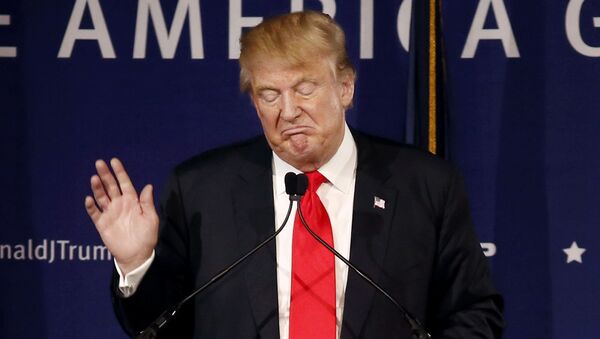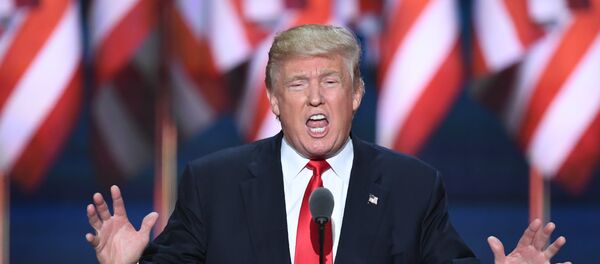According to an exit poll released last week by the National Election Pool (NEP), economic and security concerns were some of the most important issues among those who voted on November 8.
Trump on the campaign trail repeatedly vowed to withdraw from or renegotiate free trade deals that hurt the working class if he was elected president. The tycoon and former television celebrity also promised to reduce incentives for US companies to outsource jobs or relocate operations to low-cost countries like China and Mexico.
With respect to fighting terrorism, Trump ran on a platform to improve border security, intensify the fight against the Islamic State, and called for banning the admittance of refugees from Syria and other countries from which terrorists emanate.
"When people were voting, they put more of a priority on anger and fear than they did on decency," Drexel University Professor of Political Science William Rosenberg told Sputnik.
A large percentage of Trump supporters, Rosenberg noted, included working class US citizens who lost their jobs at the factory, are scraping by in lower-paying roles or have been forced to work more than one job.
Trump’s victory, Rosenberg continued, was also fueled by fears among many voters that "white male privilege" was essentially being taken away.
"Decency went down the tubes in terms of the primary motivator for people who were voting for Donald Trump," Rosenberg explained.
Hillary Clinton, Rosenberg said, also had decency issues because people had a hard time trusting her in the wake of the email scandal.
Clinton supporters, for their part, Rosenberg argued, also were driven by the very same emotions as exemplified in the protests that erupted across the country after Trump’s victory.
"I think that was fueled by this anger and fear of younger people and people of color who just can’t fathom what just happened," Rosenberg stated.
Rosenberg disagreed with the notion that the polls were wrong because most were within the margin of error in many of the states that ended up tipping in Trump’s favor.
The raw data and science behind the polling was accurate, albeit the art of analyzing the data might have been flawed, Rosenberg suggested.
"There is an increasingly strong pull toward celebrity culture and status in our society," Gutgold explained.
Gutgold also said that one explanation for why the pre-election polls failed to accurately predict the outcome is "social expectation theory."
"Polls were wrong because people said they would vote for HRC [Hillary Rodham Clinton] and then did not and people did not admit that they were voting for Donald Trump," Gutgold claimed.
More than 80 percent of Trump supporters, the NEP poll revealed, saw the ability to "bring needed change" as the quality that mattered most in a presidential contender.
As of Saturday, Trump had secured 290 electoral votes, twenty over the threshold required to win the US presidency, to Clinton’s 228, according to AP figures. Clinton, however, is set to win the popular vote by some 574,000 ballots, a less-than 1 percent margin.






